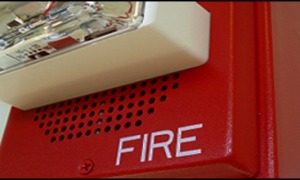Close Call With Unattended Candles
October 20, 2023
Recently Our Team Responded To A Report Of Smoke And A Beeping Smoke Detector
It turned out to be two candles left unattended. Fortunately, neighbors had checked in on the resident when they heard the beeping. When no one responded at the door they tried it, found it unlocked, and the two candles were discovered burning on a table. Had it been allowed to continue as it was, a major fire could have erupted.
This obviously reminds us of how close we can come to a major emergency. With that in mind, please remember to stay aware of our Resident Emergency Plan. Resident Emergency Procedures April 2023 This covers everything from fires, floods, general evacuations, active shooters and more.
However, while understanding what to do in the event of an emergency is important, so is understanding things you should do to prevent emergencies. Such as the really very extremely without a doubt at all bad bad bad move, of leaving a burning candle unattended. And in this case, there were too.
I did some exploring on line and found the following post from State Farm. It will take only a few minutes to read, and covers some very common sense territory about common causes of household fires. Candles being one of the leading causes.
From: State Farm Online
Leading causes of house fires and how to prevent them
Devastating home fires are all too common. By taking fire precautions at home, you could help prevent the fire before it starts.
Home fires are not only unexpected, but also unpredictable and can quickly spiral out of control. It is reported that in 2020, there were nearly 356,500 home fires in the United States. And unfortunately, the fires resulted in 2,730 civilian fatalities. The real tragedy is that so many of these fires can be prevented. By taking the basic precautions listed here, you could stop a disaster before it starts.
What causes home fires?
Cooking is the leading cause of home fires in the United States, starting almost half of all fires. Heating is the second highest cause, followed by electrical systems/lighting equipment and intentional fires. Smoking is the fifth highest cause, but is the leading cause of civilian home fire deaths.
Candles are also a significant cause and are responsible for approximately 20 home fires reported every day.
Cooking fires
Follow these tips from the National Fire Protection Association:
- Be alert. If you are sleepy or have consumed alcohol, don’t use the oven or stove.
- Stay in the kitchen while you are frying, grilling or broiling food. If you need to leave the kitchen for even a short period of time, turn off the oven or stove.
- If you are simmering, baking, roasting or boiling food, check it regularly. Remain in the home while food is cooking, and use a timer to remind you that you are cooking.
- Keep your stovetop clear of anything that can catch fire, including oven mitts, wooden utensils, food packaging, towels or curtains.
If a cooking fire starts:
- Be prepared. Keep a lid nearby when you’re cooking on the stovetop. If a small grease fire occurs, smother it by sliding the lid over the pan. Turn off the stove and leave the pan covered until it has completely cooled.
- For an oven fire, turn off the heat and keep the door closed.
- Whenever fighting a fire, be sure others leave and that you have a clear way out.
- If the fire continues or grows, get out immediately! When you leave, close the door behind you to help contain the fire.
- Call 9-1-1 or the local emergency number after you leave.
Heating equipment
- Consider replacing older space heaters with new ones that turn off automatically when overheated or tipped. Keep them at least three feet away from anything flammable.
- Have furnaces and chimneys professionally cleaned and inspected every year.
- All fireplaces should have a sturdy screen. Never use flammable liquids to start a fire in a fireplace. Allow ashes to cool completely and use a metal bucket for disposal.
Electrical systems and equipment
- Have your home inspected by a qualified electrician, especially when purchasing an older home.
- Use a qualified electrician when having electrical work done.
- Watch for the warning signs of faulty wiring. These can include blown fuses, visibly damaged wiring, discoloration around outlets, flickering lights or burning odors.
- Protect your home against arc faults. An arc fault occurs when an electrical short produces an arc: intensely hot sparks that can set fire to nearby flammable materials. Arcs often happen in appliance or extension cords that have become frayed or cracked.
- To prevent arc faults, have Arc Fault Circuit Interrupters (AFCIs) installed in your home. These devices look and work like conventional circuit breakers. When an AFCI detects an arc, it shuts off the circuit.
- Power surges can damage appliances and even cause fires. Protect your home with a two-tiered surge protection system: a whole house surge protection device (SPD) on the main electrical service to the home, and point-of-use SPDs for all valuable electronics and appliances.
- Smart sensor devices can help detect the invisible dangers lurking in your home.
Candles
Each year, candle fires account for hundreds of thousands of dollars in property damage and hundreds of unnecessary injuries and deaths.
- Only burn candles under constant supervision.
- Keep burning candles a minimum of one foot away in all directions from flammable and combustible items.
- Keep candlewicks trimmed to within one-quarter (¼) inch from the top of the candle.
- Do not allow candles to burn down to the bottom of their container.
- Extinguish all candles before leaving the house or when going to bed at night.
- Place candles in safe locations, out of the reach of children or pets.
- Only place candles on secure furniture that is unlikely to tip over.
Smoking
To help prevent a smoking accident from causing a fire, the U.S. Fire Administration recommends that you:
- Smoke outside. Many things in your home can catch on fire if they touch something hot like a cigarette or ashes. It is always safer to smoke outside.
- Put cigarettes out all the way. Do this every time. Don’t walk away from lit cigarettes and other smoking materials. Put water on the ashes and butts to make sure they are really out before you put them in the trash.
- Be alert. Do not smoke after taking medicine that makes you tired. You may not be able to prevent or escape from a fire if you are sleepy or have taken medicine that makes you tired.
- Never smoke around medical oxygen. Medical oxygen can explode if a flame or spark is near. Even if the oxygen is turned off, it can still catch on fire.
- Never smoke in bed. Mattresses and bedding can catch on fire easily. Do not smoke in bed because you might fall asleep with a lit cigarette.
- Put your cigarette out in an ashtray or bucket with sand. Use ashtrays with a wide base so they won’t tip over and start a fire.
Christmas trees
Take fire precautions at home during the holiday season.
- Ensure that your live tree is fresh as the needles should be hard to pull from the branches and don’t break when bent between your fingers.
- Place the tree away from heat sources such as fireplaces, vents and radiators.
- Check the water level daily and make sure the stand is filled with water.
- Make sure the tree is not blocking doorways and is out of traffic.
- Look for the “Fire Resistant” label if you buy an artificial tree.
If you spot a fire, call 911 immediately. Can’t find the source of the smell? Contact your fire department — it’s better to be safe than sorry. If there’s no fire but you suspect a mechanical or electrical problem, contact a licensed repair technician as soon as possible.
Practice fire prevention year-round with these tips from State Farm®.








